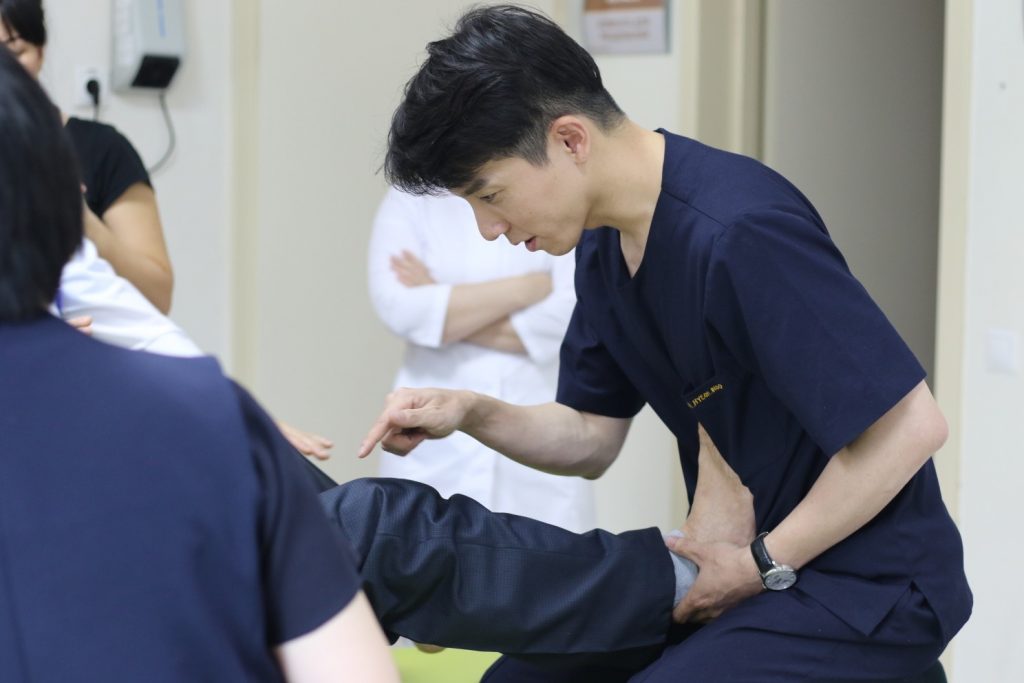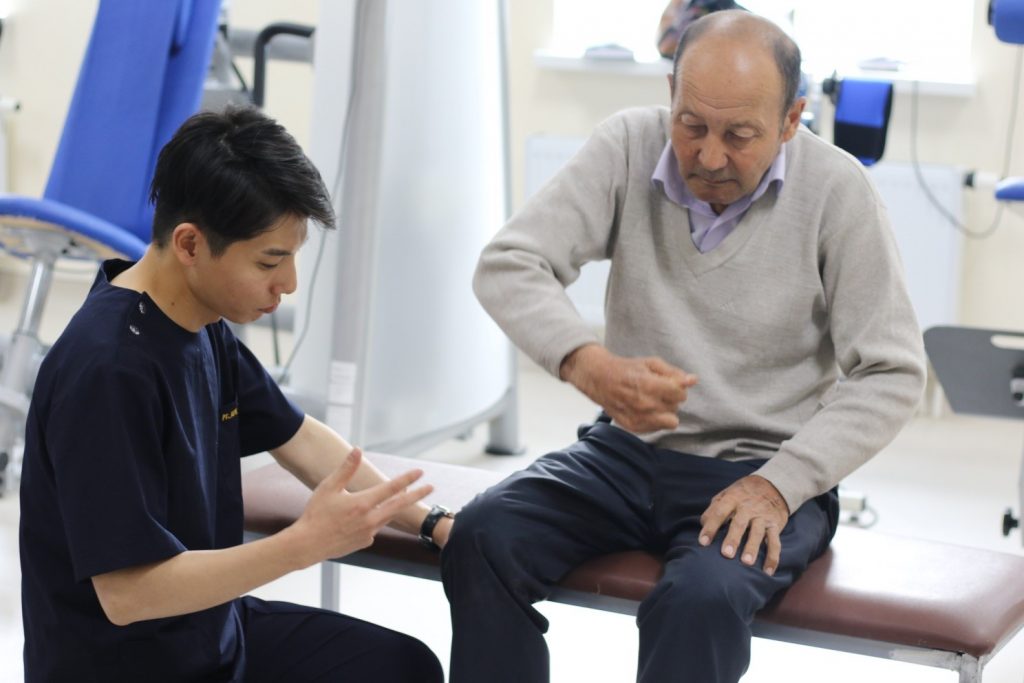“What do you want to go for?”
is one of those questions you would never think to ask: the walk function is built into us by default. However, the rehabilitation specialist is not embarrassed by the obviousness of the wording – the doctor of the Rehabilitation Hospital from South Korea, Kim Hyeon Wu, encourages the patient with such questions. For him, walking is a function that is not given by default: carefully rearranging his legs, our patient thinks about his every step and is afraid of falling.“So what do you want to go for?
– House … back and forth.
– Just?
“I want to walk like everyone else.”
In fact, more than two people participate in this conversation: together with a doctor from South Korea, doctors and instructors from the Center for Rehabilitation and Rehabilitation of the Presidential Clinic observe every movement of the patient. A master class was organized for them at the Hospital.
“There are three main areas in rehabilitation: neurology, cardiology, traumatology,”
says the head of the Center for Rehabilitation and Rehabilitation of the Presidential Clinic Madinat Amantaevna Zhunusova. – This master class is dedicated to rehabilitation after acute cerebrovascular accident. In percentage terms, patients with neurological diseases today account for 35% of the total number of all our patients. We hold such master classes in order to improve the skills of our employees, to exchange experience with leading experts in the world and, most importantly, to help our patients return to normal life after a stroke as soon as possible.”
“When we take a step and jump forward, not only should our calves stretch, but also the heel muscles,” continues Kim Hyeon-woo, an international doctor and practical instructor in PNF (Proprioceptive Neuromuscular Facilitation). According to this technique, the patient is treated literally by movement. There are no devices and systems – only the hands and knowledge of a doctor who acts on muscle receptors to help the patient perform this or that movement, up to moving facial expressions and eyelids.
“In patients with neuroproblems, it is important to first identify the area of brain damage, and then discuss how and to what extent the affected area can be restored. Together with the doctors of the Hospital, we examined how the affected areas of the brain are restored, how they change and work. Science today confirms that in order to stimulate the brain, you need to perform certain movements. A person has to move,” says Professor Kim Jun-hwi, who has been a physiotherapist at Severance Hospital for more than ten years, including six years as an instructor of Bobath therapy, another method of restoring motor function in patients after a stroke.
“In order to influence the brain, there are many different methods of treatment. There are many ways, but the most common of them are PNF therapy and Bobath therapy. The history of these therapies is long, it began in the forties of the last century,” continues Professor Kim Jun Hwi. – In this master class, we consider separately Bobath and PNF therapy, in what cases and how both techniques are used, as well as how to effectively implement both techniques in Kazakhstan to improve the condition of patients during their rehabilitation treatment. I believe that at this stage of rehabilitation in Kazakhstan, which is beginning to develop actively, such an acquaintance with these methods is an important event.”

However, the master class itself is only a part of another event that took place this spring: the Presidential Clinic became an official partner of one of the largest and top hospitals in Asia, the Severance Clinic of Yonsei University.
“In March, we signed a cooperation agreement with the Hospital of the Medical Center of the UDP RK, and in order to implement this agreement, we received a request from your clinic to conduct a master class on neurorehabilitation, on the management of post-stroke patients. We prepared specialists, and they arrived. It was also important for us that a hospital of this level wants to raise the level of rehabilitation, and that we can help in this. That’s why we’re here,” said Larisa An, Ambassador of Yonsei University Severance Hospital.
The next stage of cooperation is another master class. Professor Hwi will return to the Presidential Clinic to share his experience, now in the field of traumatology.
